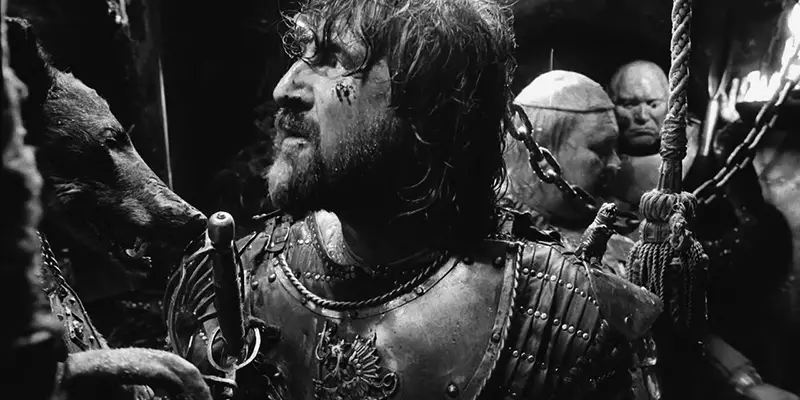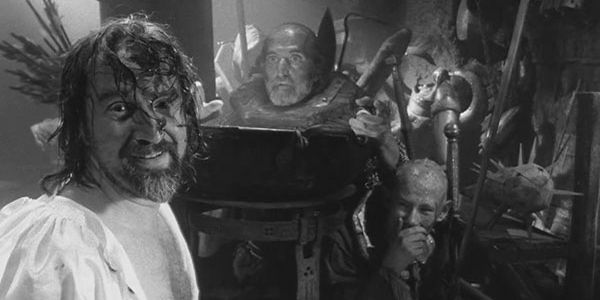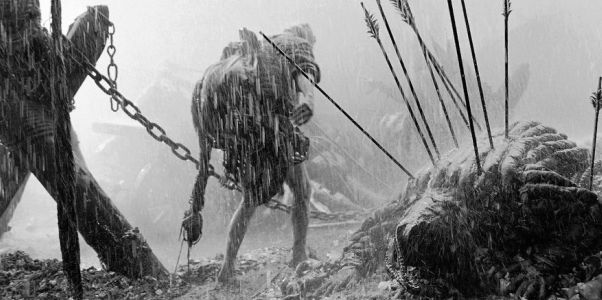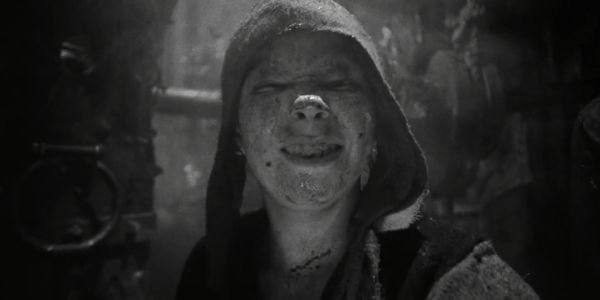HARD TO BE A GOD: Hard For Some, Great For Others

Massive film lover. Whether it's classic, contemporary, foreign, domestic, art,…
Aleksei German once said “I am not interested in anything but the possibility of building a world, an entire civilization from scratch.” While “worldbuilding” has turned into a sort of buzz term, it’s fair to say that he did succeed in creating a meticulously detailed world that is as equally claustrophobic and terrifying as it is expansive and daunting.
Aleksei German’s final film Hard to Be a God, an adaptation of Arkady and Boris Strugatsky’s novel of the same name, turned into a subject of curiosity given the thirteen-year production, dense source material and the death of the director before the film’s release.
Hard to Be a God or Hard to Be a Viewer?
With a plot summary that reads about as long as a short story, the concise run down of Hard to Be a God is best summarized as follows: a group of scientists travels to a planet similar to earth. However, this planet never evolved from the dark ages, ruthlessly suppressing intellectualism, resulting in a world where the Renaissance never took place. In an attempt to civilize the Kingdom of Arkanar, Anton, one of the scientists, assumes a new identity as Don Rumata and establishes himself as a nobleman. Some deify him for his progressive line of thinking; others want to kill him.

While Hard to Be a God is a singular experience, Aleksei German’s influences are on his sleeve; it’s impossible not to think of Andrei Tarkovsky‘s lucid and earthy epics such as Stalker (one of German’s favorite films) and the classic Andrei Rublev. The work of Alexander Sukorov, František Vláčil, and even Polish director Andrzej Zulawski comes to mind when you witness German‘s weightless camera in action. The level of detail and attention that was invested in this project results in a sprawling, hypnotic slab of nightmarish beauty.
Diamond in the rough – the beauty of grimy Arkanar
Aleksei German does a lot in his technically and aesthetically loaded film. His ambition in expressing spiritual and religious themes is essential; a film can either rely on symbolism and allegory or favor grand visual spectacle. Hard to Be a God tonally offsets any preconceived method of storytelling and narrative structure. The journey for the protagonist Don Rumata is somewhat inconsequential – instead, you are put in the front seat of an all-encompassing first-person tour through the bowels of Arkanar.
If you enter the film with this requisite knowledge, the narrative will be a bit more clear. Yes, the story is confusing and occasionally difficult to follow, but the experience is what matters here, and the gravitational pull of this fully immersive piece of filmmaking is unlike anything committed to screen.

There’s a familiar disconnect to the images in this movie, as we are plunged into the putrescent muck of the developmentally arrested backward habitat in Arkanar. The point of view is wall-breaking; at eye level we are bombarded with a depraved grab bag of bodily fluid ejecting people, clad in medieval garb and inflicting all manners of violence on each other. Drifting through this world, characters directly interact with the camera, and our inability to react to the atrocities in front of our eyes reinforces our ineptitude, or indifference as humans. Or does it? The more you try to understand Hard to Be a God, the more questions the film will raise.
Politics, Science Fiction, and Medieval Ritual
The structural intonation and design of the film do more than inform us of the film’s titular implications, and the guide-like first person P.O.V. through Rumata’s is more than proof that it’s indeed hard to be a god. But is also reminds us: “how can there be a God?” The other communicative component of this feverish dreamscape is the Stalinist allegory – people inflicting harm upon one another, ceased progress, punishment by death meted out with little to no discretion. The proclivity towards gloom isn’t self-motivated, but is the product of living under a dictatorship.

Long story short, the overtly harsh and grim environment is at times hard to watch but visually rewarding at the same time. Hard to Be a God is perhaps the most detailed and richly textured film I’ve ever seen. Every inch of Arkanar feels hand carved out of wood and stone. The weathered look of each object in the frame boasts a level of consummate detail that surpasses anything before or likely after.
This elemental presence enhances the surreal qualities in a way that recall Pasolini’s Trilogy of Life. Every frame is filled with strange handmade trinkets, jugs, chairs, stockades, armor, hats, jewelry, swords, and inconceivable tools for execution and torture, while rain falls through the cracks of the haphazard architecture of Arkanar. Cinematographer Vladimir Ilyin braves the storm of an expansive and murky vision with a diamond cutter’s eye for recognizing the phenomenal element in the putrid habitations here. The emphasis on “experience” cannot be pressed enough; the involving atmosphere arrests the senses.
An Experience Like No Other
At the end of the experience of viewing Hard to be a God, depending on your patience (or endurance), you might be astounded, disgusted or flat out confused. Perhaps all of the above? But don’t feel alone, I don’t think you can read two reviews of this film that are anything alike.
It’s an experience, and the film is so richly textured and devotedly realized that it rocks you into a hypnotic trance that can only be seen to be believed. If you asked me to summarize Hard to Be a God I would simply say “sorry, that’s not possible”, and that’s exactly why I love it so much. It’s not often that a film can show you something you have ever seen, but Hard to Be a God is three hours (nearly with a 177 minute running time) of unhinged imagination.
With so many questionable adjectives attached to a film you might be asking “well, why should I see this?” Hard to Be a God is a transgressive masterpiece; hard to watch, challenging to understand, but impossible to turn away from.
With so many conflicting arguments about the content of the film, which ones did you find more alluring? If a movie seems so inaccessible, does that justify watching it?
Does content like this matter to you?
Become a Member and support film journalism. Unlock access to all of Film Inquiry`s great articles. Join a community of like-minded readers who are passionate about cinema - get access to our private members Network, give back to independent filmmakers, and more.
Massive film lover. Whether it's classic, contemporary, foreign, domestic, art, or entertainment; movies of every kind have something to say. And there is something to say about every movie.













